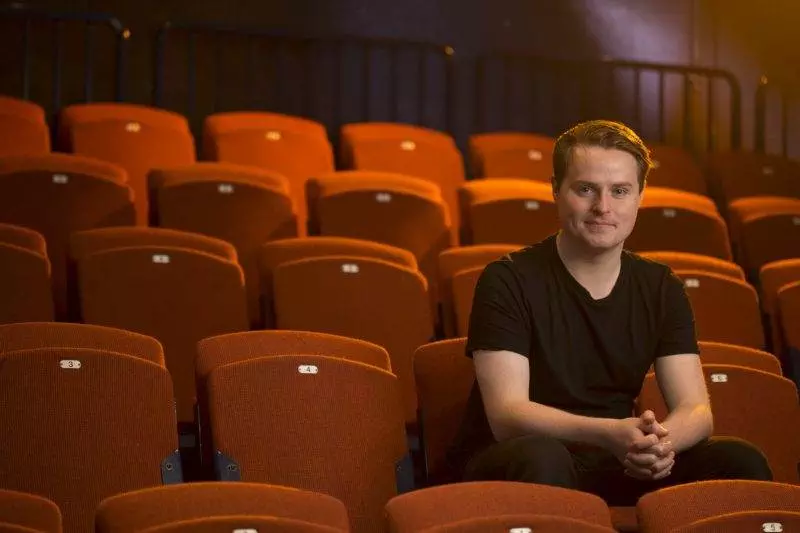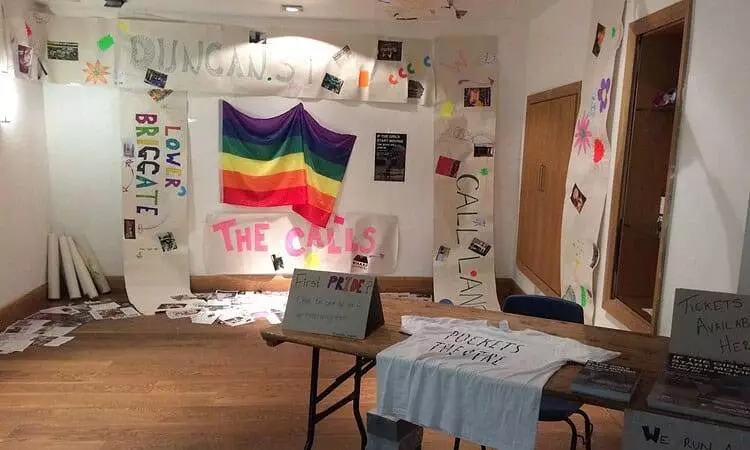DR SAM MCKAY writes about why theatre matters in a crisis and introduces the Leeds Creatives Coronavirus Impact Fund.
Theatre for Crisis
Our shared crisis is demanding sacrifice this Easter. Normal life is suspended. Families stay away from each other. Partners keep their distance. Life is lost by those who save it. But, we still get up, we make toast, we drink coffee. Eventually, we will make art to figure out what happened to us this spring, to share stories, to ask questions, to protest, to mourn.
In the past few weeks I have seen an abundance of jokes on Twitter and Facebook predicting the wave of bad theatre and art that will be made about this part of history. I have even posted a few. It has the potential to be horrendous. I endure nightmares of studio performances where middle class family secrets are exposed in the bubble of isolation, of King Lear but the cast wear face masks and scrubs for no discernible reason, of a musical called These Bizarre Times that will have a bopping score we’ll all fall in love with.
My PhD research looked at theatre during a different crisis; the refugee crisis in Europe that held the front pages at the middle of the last decade, amidst an economic and political landscape of austerity. I was focused on the community theatre made in response to that context. I had to ask fundamental questions about what a crisis is. Crisis invokes notions of violence, excess, transgression. It is mediated to us by politicians, journalists, news reporters. It is desperate, and lived, but yet even in crisis we get up, we make toast, we drink coffee. Crisis is not something you can touch, but it can touch you; a phone call to say a loved one is ill, a cough that will not go away, redundancy, a day at the hospital with facemasks running low when the government tells us they are not.
Theatre in crisis is sometimes unwarranted, it is often unhelpful, it can be damaging, or as above, it can just be bad theatre.
Theatre is vital in this crisis.

We are each living this as individuals. I get out of bed and I greet my partner back from work; he is a doctor and has been on the night shift on intensive care. I sit with him, hear about what is going on. He goes to have a sleep, I make toast, I make a coffee. We are living the same crisis, and whilst I can feel for his experience, I cannot feel it. I have sacrificed seeing my family to make sure he is ok during this. He is risking his life to make sure others are.
When this is over, and we can come together in the same room again, experiences must be shared, because at the moment they cannot. We are locked away in our bubbles, some safe, others not, but for the moment we are each separated from lines of representation, from really sharing what it is like in our skin.
Theatre must be made about this time, and it must be made with communities. It must share the stories that at the moment do not hold the gaze of journalists and politicians. It must honour the sacrifices we make, the way crisis unfolds and touches, and the way we all live through this together but alone. At the moment we deeply feel for each other’s experiences – theatre can help us just feel, and know a little more of what it was like in someone else’s shoes.
This crisis is touching those of us who work in the arts and culture sector financially, particularly people who are freelance and self-employed who have suddenly found themselves without any income and are ineligible for government support. If you have any money to spare, please consider donating to the Leeds Creatives Coronavirus hardship fund.
